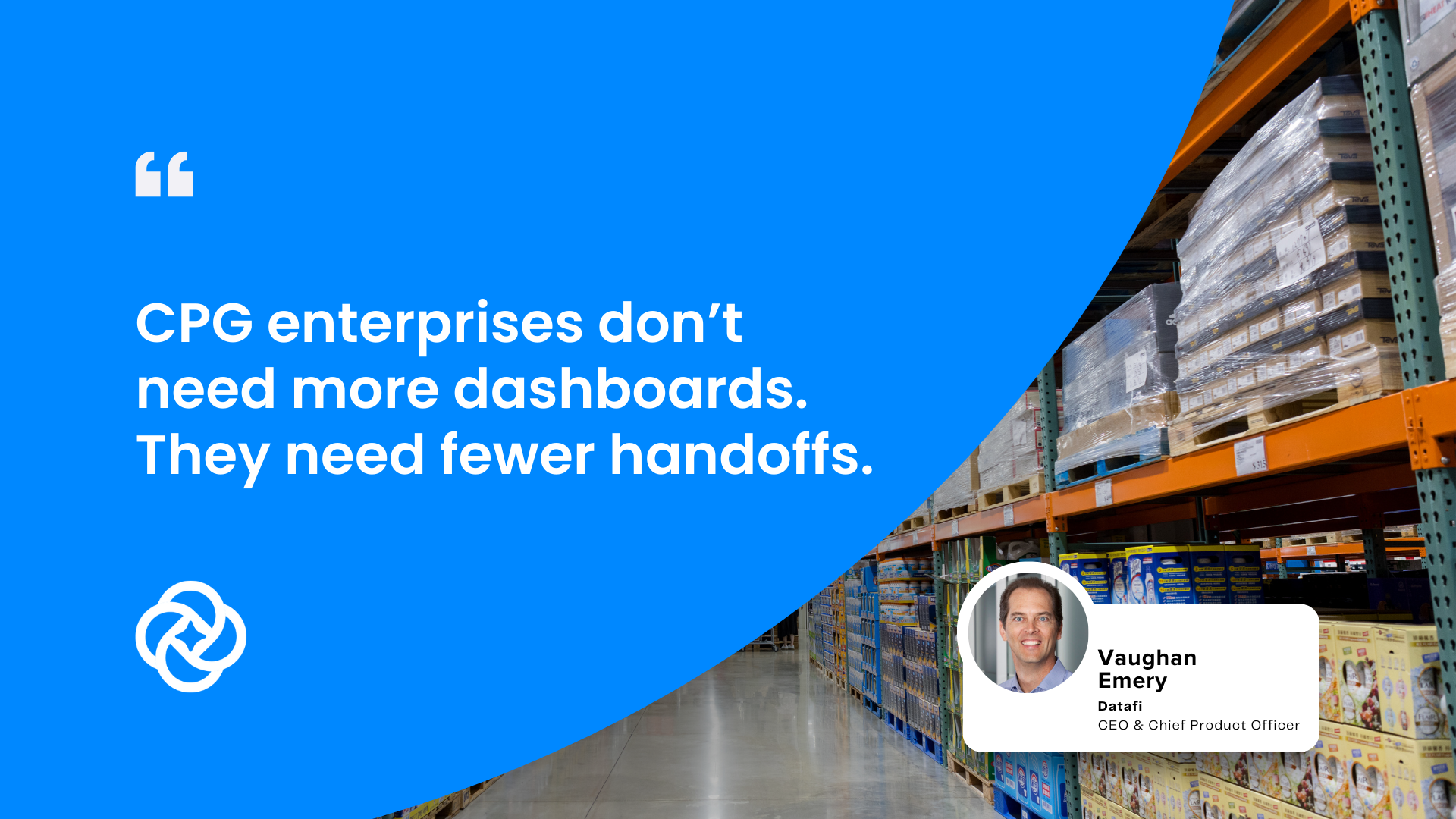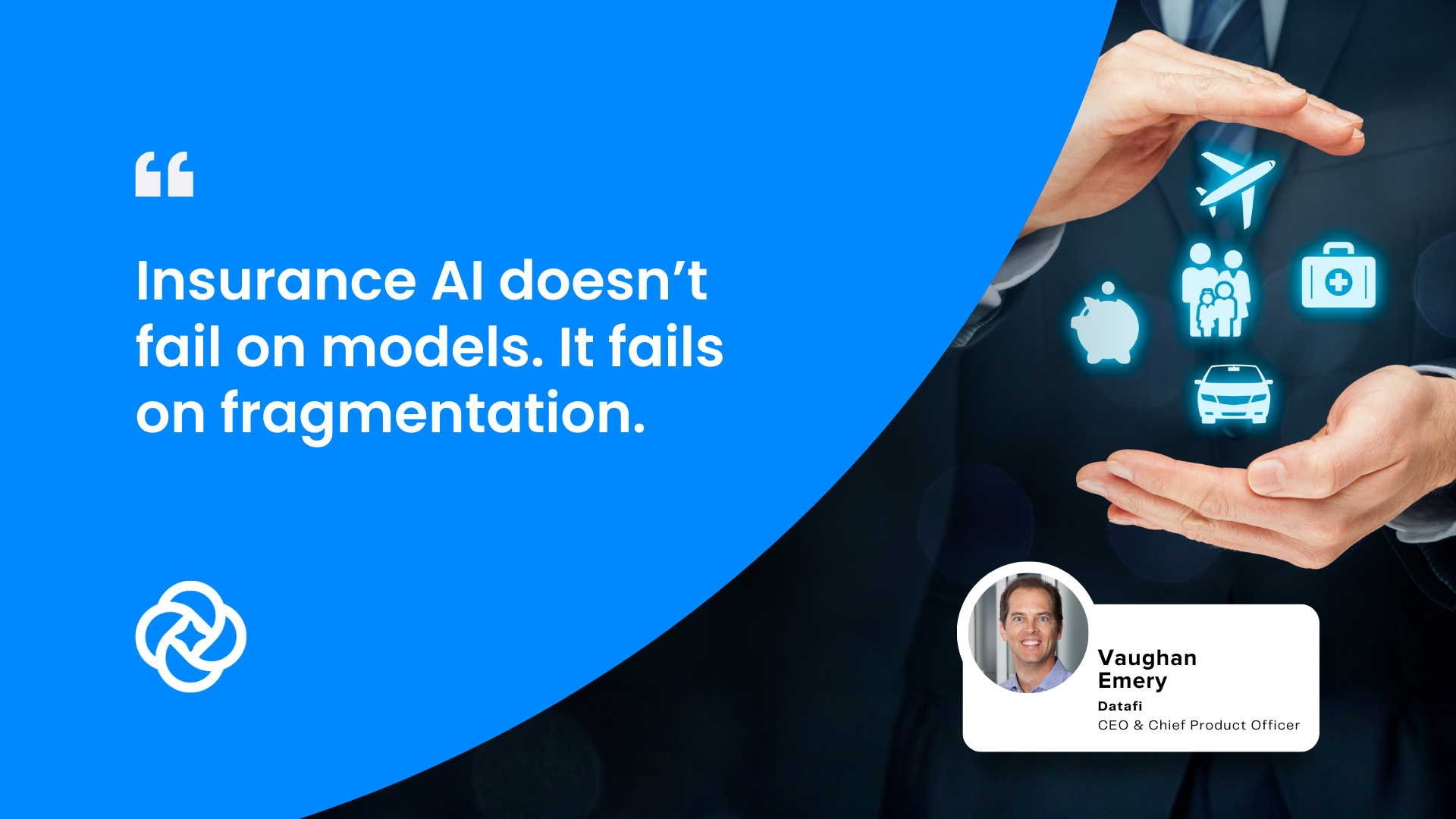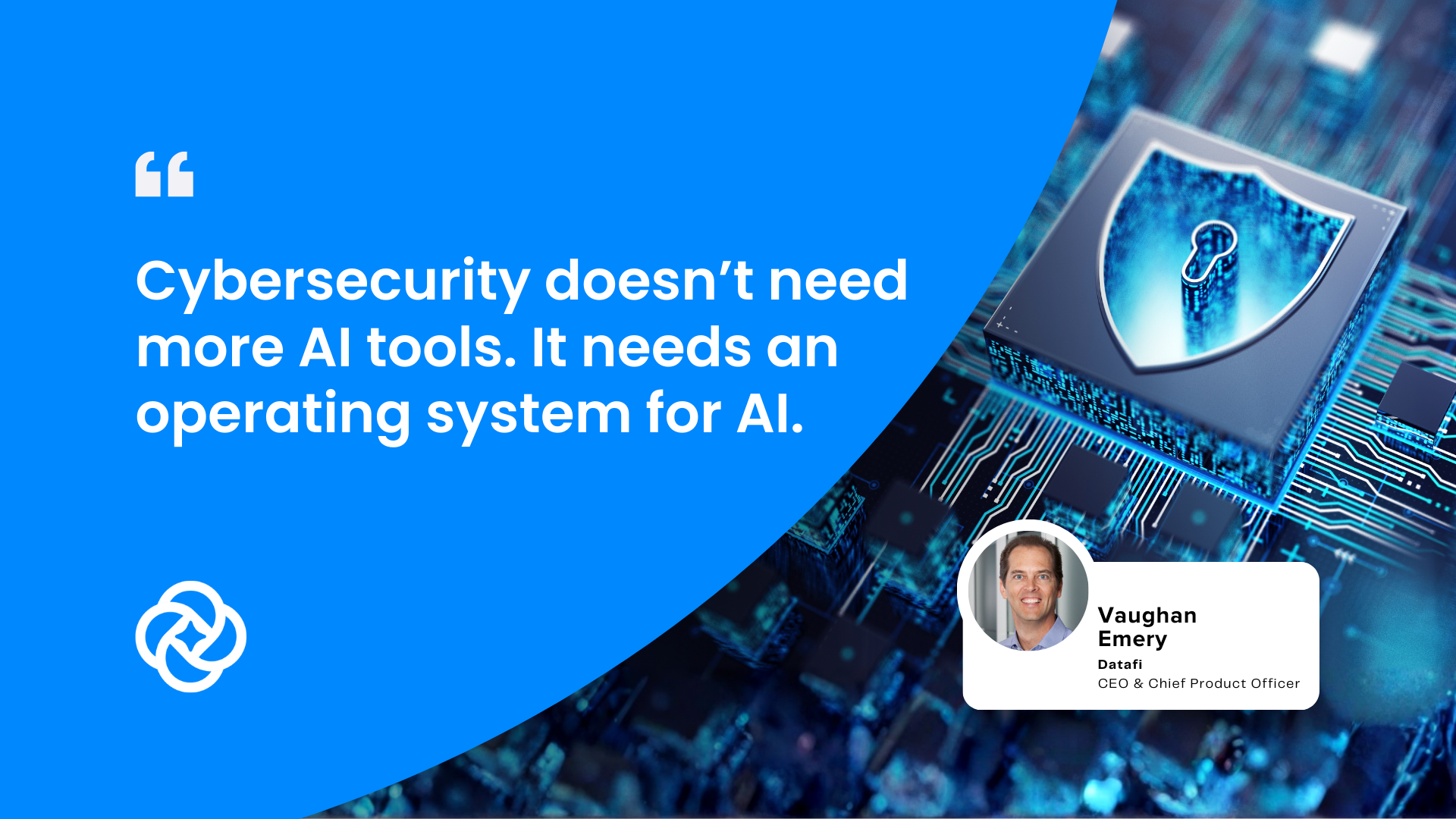How Datafi Empowers HR

HR plays a key role in successfully rolling out AI within an organization, and HR also stands to be a major beneficiary of successful AI deployment. While AI is a huge term, encompassing more by the day, HR can specifically benefit from a specialized subset of AI known as knowledge agents.
Knowledge agents, when done well, serve as personal AI assistants to all who use them. Knowledge agents should be deployed widely throughout an organization in order to securely push specific business information out to whomever needs it. This empowers the entire organization.
A Central Role for HR
The central role of HR was emphasized by Anthony Abbatiello, Workforce Transformation Leader, Partner, at PwC, in a recently published article titled “PwC: Agentic AI Lies at the Center of the Future of Work and HR Leaders Need to Be In the Driving Seat.”
“Where AI is autonomous and agentic, that’s where it’s a knowledge point,” Abbatiello says. “I think the skill point comes in augmenting how workers use it to do their job better. There’s new skills around – if you’re a human who manages agents and humans, or just agents, that’s a new job.”
Underscoring the need to transform data to knowledge, Abbatiello adds: “The companies that will win, and are winning more, are the ones where they’ve democratized that knowledge.”
At Datafi, we’ve harnessed the power of AI to create our Datafi Knowledge Agent technology. Datafi works as a unified interface to all of an organization’s data—whether it is stored in a data warehouse, Sharepoint, Snowflake, Salesforce, email, Slack, line of business applications, or any other data stores across an organization’s data ecosystem.
The power of our unified interface is that an employee doesn’t need to know where data is kept. They can just ask their Knowledge Agent a question, and Datafi handles the rest. We also provide a user-friendly chat interface, so employees can ask their questions from the keyboard, or simply by talking to their Knowledge Agent, whichever they prefer.
The more a person uses their personalized Knowledge Agent, the more the agent learns about what they need to excel in their work.
Encouraging A Culture of Learning
In addition to being easy to use, Datafi also makes it easy for employees to create their own personalized applications. The ease with which employees can drag and drop to create no-code personal productivity apps encourages a culture of exploration and learning, which fits well with HR objectives enhancing personal performance and job satisfaction.
The ease of use also goes well with the PwC vision for HR as drivers of AI adoption through shaping the culture, mindset, and values of an organization, while encouraging a sense of exploration and experimentation. While IT has an obvious role, it is up to HR to ensure that the technology is deployed in a way that resonates with employees. In this regard, PwC sees HR in the role of gardener—planting seeds and nurturing growth.
“It’s more about gardening than engineering,” Abbatiello says. “It’s really about creating space for experimentation, modeling curiosity and responsibility with AI, setting guard rails of what’s fair game and what’s not, and then encouraging a culture of learning, questioning and adaptation. It’s moving from a ‘Command and Control’ approach to ‘Guide and Grow’.”
Safeguards Included
HR, as a repository of personally identifiable information, requires safeguards for data access. To ensure security, policy, and governance, Datafi makes it easy for admins to set access controls. Datafi enforces attribute-based access control (ABAC) security that stays with the data, ensuring the contextual security required for AI. ABAC is used by the most security-focused enterprises because it enforces access control at a deeper level, directly on the data itself, enhancing data security. This means that if a person requests data, the Datafi Knowledge Agent will respond only with information they are allowed to see—masking out fields, for example, that contain PII or other sensitive information.
Benefits for HR, Too
While HR plays a key role in introducing AI, it also stands to benefit from its own adoption of technology such as Knowledge Agents. A lot of time spent answering emails and phone calls can be eliminated when every employee has a Knowledge Agent they can go to when they have a question about vacation days, expense accounts, travel policy, training classes, health and safety, and so many other things that HR handles.
HR can create their own Knowledge Agents and drag-and-drop personal productivity apps to streamline processes involved in recruitment, performance management, learning and development, and other mission critical tasks and administrative responsibilities.
So, AI is coming, and HR can lead the parade.
Check more at datafi.co
How Datafi Empowers HR
HR plays a key role in successfully rolling out AI within an organization, and HR also stands to be a major beneficiary of successful AI deployment. While AI is a huge term, encompassing more by the day, HR can specifically benefit from a specialized subset of AI known as knowledge agents.
Knowledge agents, when done well, serve as personal AI assistants to all who use them. Knowledge agents should be deployed widely throughout an organization in order to securely push specific business information out to whomever needs it. This empowers the entire organization.
A Central Role for HR
The central role of HR was emphasized by Anthony Abbatiello, Workforce Transformation Leader, Partner, at PwC, in a recently published article titled “PwC: Agentic AI Lies at the Center of the Future of Work and HR Leaders Need to Be In the Driving Seat.”
“Where AI is autonomous and agentic, that’s where it’s a knowledge point,” Abbatiello says. “I think the skill point comes in augmenting how workers use it to do their job better. There’s new skills around – if you’re a human who manages agents and humans, or just agents, that’s a new job.”
Underscoring the need to transform data to knowledge, Abbatiello adds: “The companies that will win, and are winning more, are the ones where they’ve democratized that knowledge.”
At Datafi, we’ve harnessed the power of AI to create our Datafi Knowledge Agent technology. Datafi works as a unified interface to all of an organization’s data—whether it is stored in a data warehouse, Sharepoint, Snowflake, Salesforce, email, Slack, line of business applications, or any other data stores across an organization’s data ecosystem.
The power of our unified interface is that an employee doesn’t need to know where data is kept. They can just ask their Knowledge Agent a question, and Datafi handles the rest. We also provide a user-friendly chat interface, so employees can ask their questions from the keyboard, or simply by talking to their Knowledge Agent, whichever they prefer.
The more a person uses their personalized Knowledge Agent, the more the agent learns about what they need to excel in their work.
Encouraging A Culture of Learning
In addition to being easy to use, Datafi also makes it easy for employees to create their own personalized applications. The ease with which employees can drag and drop to create no-code personal productivity apps encourages a culture of exploration and learning, which fits well with HR objectives enhancing personal performance and job satisfaction.
The ease of use also goes well with the PwC vision for HR as drivers of AI adoption through shaping the culture, mindset, and values of an organization, while encouraging a sense of exploration and experimentation. While IT has an obvious role, it is up to HR to ensure that the technology is deployed in a way that resonates with employees. In this regard, PwC sees HR in the role of gardener—planting seeds and nurturing growth.
“It’s more about gardening than engineering,” Abbatiello says. “It’s really about creating space for experimentation, modeling curiosity and responsibility with AI, setting guard rails of what’s fair game and what’s not, and then encouraging a culture of learning, questioning and adaptation. It’s moving from a ‘Command and Control’ approach to ‘Guide and Grow’.”
Safeguards Included
HR, as a repository of personally identifiable information, requires safeguards for data access. To ensure security, policy, and governance, Datafi makes it easy for admins to set access controls. Datafi enforces attribute-based access control (ABAC) security that stays with the data, ensuring the contextual security required for AI. ABAC is used by the most security-focused enterprises because it enforces access control at a deeper level, directly on the data itself, enhancing data security. This means that if a person requests data, the Datafi Knowledge Agent will respond only with information they are allowed to see—masking out fields, for example, that contain PII or other sensitive information.
Benefits for HR, Too
While HR plays a key role in introducing AI, it also stands to benefit from its own adoption of technology such as Knowledge Agents. A lot of time spent answering emails and phone calls can be eliminated when every employee has a Knowledge Agent they can go to when they have a question about vacation days, expense accounts, travel policy, training classes, health and safety, and so many other things that HR handles.
HR can create their own Knowledge Agents and drag-and-drop personal productivity apps to streamline processes involved in recruitment, performance management, learning and development, and other mission critical tasks and administrative responsibilities.
So, AI is coming, and HR can lead the parade.
Check more at datafi.co





